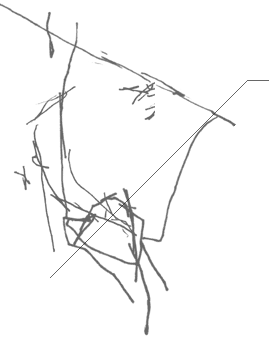Tuesday, March 3, 2026 |
||

|

by Michael Goldberg
Monday December 3, 2001
The Big Sellout
Art and ads still go together like a fish and a bicycle.
|
|||
|
London
In the huge old industrial building on the Thames that was transformed into the Tate Modern is a room with a half dozen Rothkos on the walls. These are beautiful paintings — huge canvases, done in shades of maroon and black. Sitting in the middle of the room, surrounded on all sides by these austere paintings, one feels the power of the art. There, it is possible to lose track of time, to fall into the space that Rothko's work provides. Near one of the entrances to the room is some text about the exhibit which reads: "In 1958 Mark Rothko was commissioned to create a series of paintings for the Four Seasons Restaurant in the Seagram Building in New York. Having devoted himself almost exclusively to the commission for eight months, he decided that the fashionable restaurant was an unsuitable place for the contemplation of his art, and the pictures were never installed." Imagine that! An artist who didn't want to have his work compromised by crass associations. There are, in fact, a whole lot of places that really aren't appropriate for the display of art. Art shouldn't be wallpaper. Aretha Franklin's "You Make Me Feel Like A Natural Woman" (which was playing in the café in London where I wrote some of this column) shouldn't be a soundtrack for drinking coffee. R.E.M.'s "All the Way to Reno (You're Gonna Be A Star)," which was playing in a food court in Edinburgh, shouldn't be background music for breakfast. Songs and paintings should not be dining and shopping accessories. Except, Except... In the Monday, Nov. 19, issue of London's The Guardian, there was an article titled "The brand played on." The piece was mostly a profile of Andy Gulliman, who has brought attention (and record sales) to such once-obscure artists as Clinic by using their music in television commercials. Other artists who have benefited from having their music in ads during the past few years include the late Nick Drake, Daft Punk, Moby, Goldfrapp and the Dandy Warhols. "We made a great record but didn't have any hits because UK radio is so fucking crap," Warhols' singer Courtney Taylor told The Guardian's Stephen Armstrong. "Once someone puts millions of dollars into your song, suddenly everything I've been telling the fuckers all along comes true." You can understand Taylor's point of view. For an artist like Neil Young, who has been outspoken in his disdain for songs being used in ads (even writing a song about it, "This Note's for You"), it simply gets down to principles and money. Young was a successful star long before he was approached by admen. He could walk the high road without sacrificing a whole lot. (Of course, so could the Rolling Stones, Bob Dylan and The Who, yet that didn't stop them from letting their songs become ad jingles for a price.) If you are Courtney Taylor, however, and you've seen radio and MTV mostly ignore your music, the exposure you can get by having it broadcast to millions as part of an advertisement is hard to turn down. "What are all the fucking jerk-offs who we think are idiots anyway gonna think?" Taylor asked rhetorically. "We're really concerned." So I understand why some artists let advertisers use their music. And it's not for the money. They are sick and tired of living in a ghetto, of creating work that they feel millions should hear, and would like if only they heard it. They want to reach their audience. To Thyself Be True But you know what? The Rolling Stones and their music don't mean as much to me as they did when I believed they would have told Microsoft to fuck themselves, instead of letting them use "Start Me Up." A hundred years from now, will anyone care? Will they remember that the Rolling Stones sold out? Or that one of the great Nick Drake's melancholy songs was used in a Volkswagen ad? Or will only the music remain? I can't worry about any of that. For all we know, we get to live just one life. Do you stand by your ideals? Or not? And maybe for Courtney Taylor, having his music in a commercial is no compromise. All I know is that when I sat in the room in the Tate Modern, Rothko's art really took me somewhere. And I was sure as hell glad I wasn't sitting in the Four Seasons Restaurant. |
||||